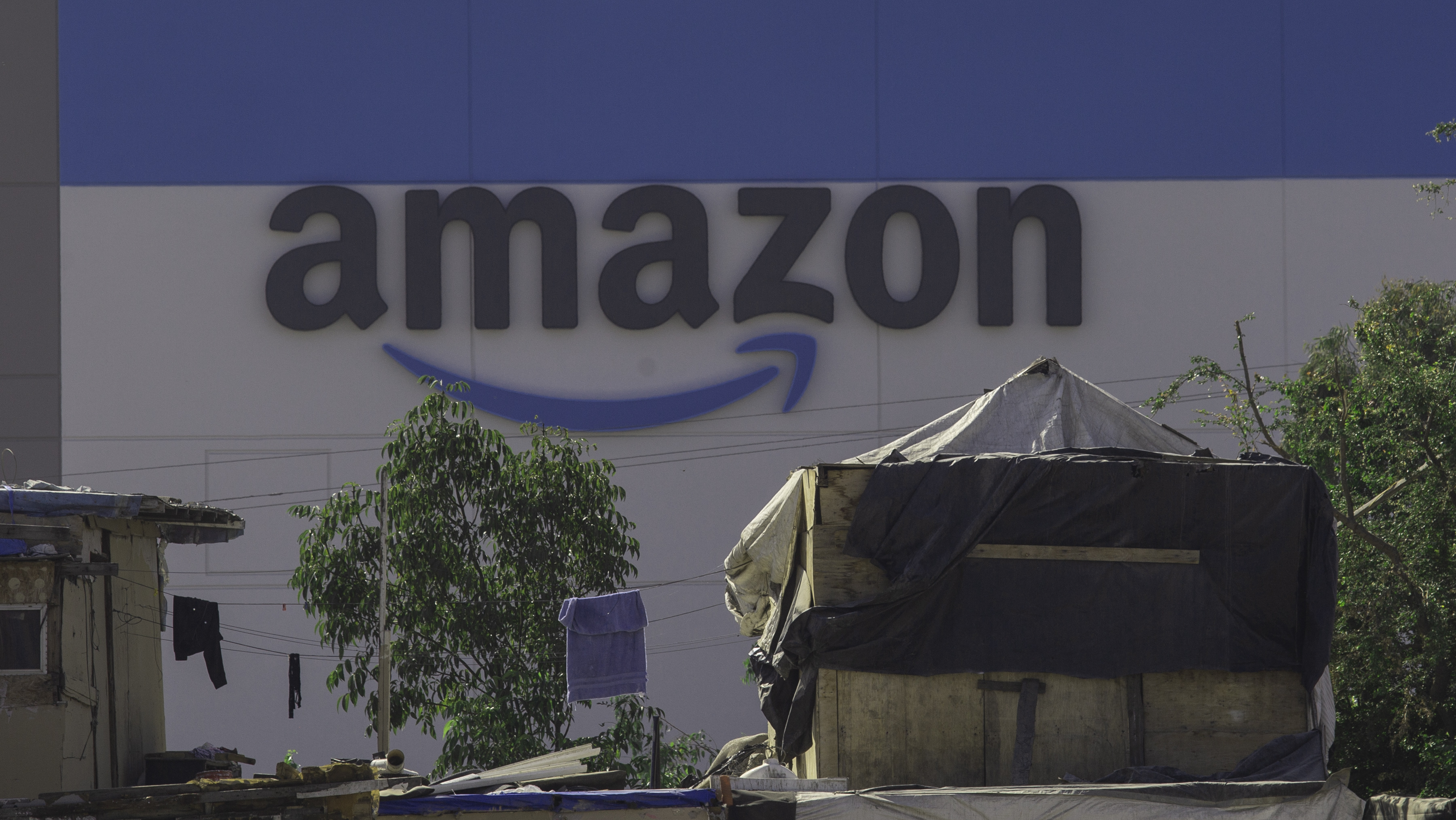This month, Amazon will open a $21 million state-of-the-art warehouse in Tijuana, Mexico, that abuts a housing settlement made of cardboard, tarp, and wood scraps along the Tijuana River, less than three miles from the U.S.-Mexico border.



In recent days, images of the shiny, new warehouse complex emblazoned with a giant blue Amazon logo—and its impoverished environs with its unpaved roads and cardboard roofs have gone viral on social media, a stark display of globalization. The images have drawn comparisons to dystopian science fiction. Amazon’s founder and chairman Jeff Bezos, who recently travelled in a rocket to outer space (and then thanked his workers for making that possible), is the world’s wealthiest person.
Videos by VICE
Marisa Vano, a spokesperson for Amazon, said, “Since our arrival in Mexico, Amazon has created more than 15,000 jobs throughout the country, creating employment opportunities with competitive salaries and benefits for all of our employees. Our wages and benefits strengthen local communities, and these investments help these areas to grow and to build better futures.”
Amazon, which is steadily spreading its reach across the globe, has been busy scaling up operations in Mexico and throughout Latin America over the past several years.
The Mexican outlet Proceso reported that the mayor of Tijuana has said that the new warehouse will speed up delivery times for Amazon goods within the Mexico border city and in nearby cities. Amazon Prime membership allows for unlimited two-day shipping throughout much of Mexico.
Vane, the Amazon spokesperson said the warehouse would create 250 new jobs available to the local community that pay industry competitive salaries. “Tijuana is one of the most important cities in northern Mexico and our presence there will enable us to generate hundreds of jobs, benefiting both the local community and our customers in the region,” they said.
Thomson Reuters has reported that Amazon warehouses in Mexico often rely on subcontracted labor, implement excessive forced overtime, and conduct layoffs without paying severance.
Because of its proximity to the United States, the Mexican border is typically more expensive than the rest of the country, and the minimum wage is higher at roughly $10.70 USD per day. None of Mexico’s nine Amazon warehouses are unionized.




